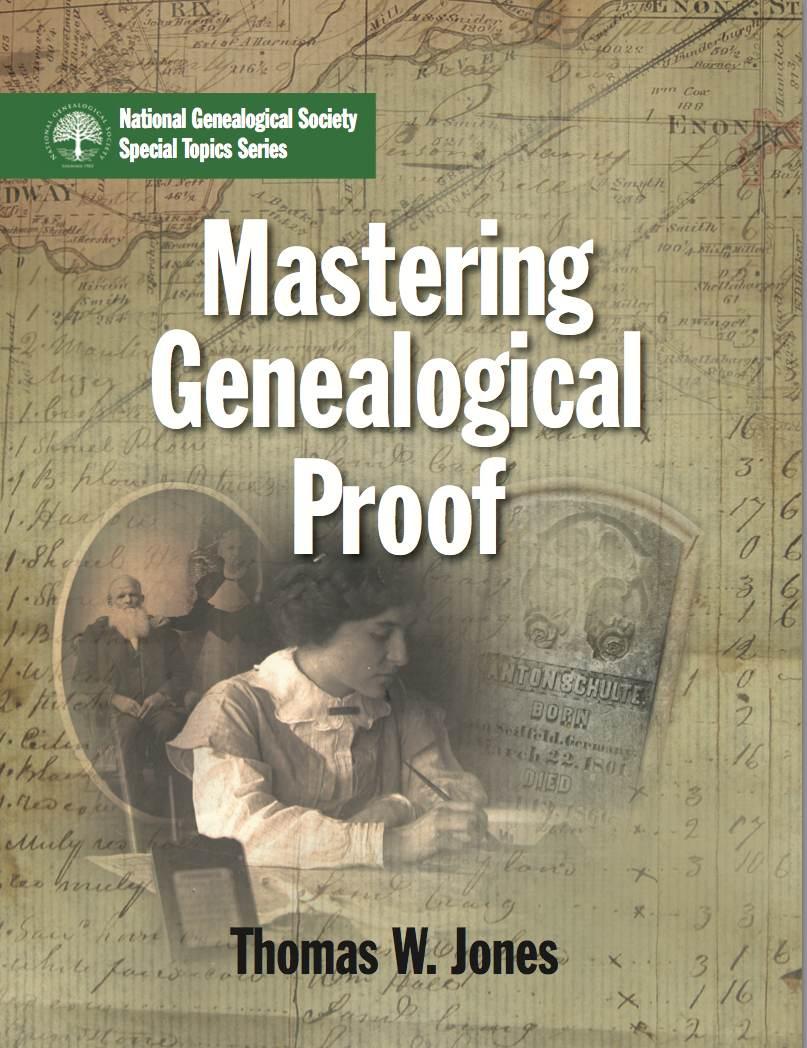Phil in SF commented on Mastering Genealogical Proof by Thomas W. Jones
Content warning reasonably exhaustive research
Going back to chapter 3, Jones offers the following rubric for testing if research is reasonably exhaustive:
- At least two independently-created evidence items in agreement.
- All sources competent genealogists would examine. (this is the hard one)
- Some primary information.
- Some original records.
- Relevant authored works, derivative records, and secondary information replaced by findable corresponding originals and primary information.
- All findable sources that relevant sources and indexes suggest.
This rubric does not appear in the 2019 edition of Genealogy Standards in any form that I can find, so I'm going to take this as a guideline. A good guideline, but just a guideline.
What Genealogy Standards (2019 edition) says with regard to reaasonably exhaustive research is:
Thorough research attempts to gather all reliable information potentially relevant to the research question, including evidence items conflicting or consistent with other evidence items. Thorough research, therefore, aims to consult all potentially relevant sources. It emphasizes original records containing primary information, which may be used as direct, indirect, or negative evidence.
As I note above, "all sources competent genealogists would examine" is the hardest of those 6 rubric items. It's very dependent on the research question, the area, the time, the family, etc. I can consult guides research guides, but it's still going to be very subjective and variable.
Note: one rubric that I have been told both by other researchers and even a genealogy instructor was "3 sources". Jones doesn't explicitly refute this rubric, but his 1st point indirectly conflicts because 3 sources may not be independently created. For instance, my birth certificate, drivers license and passport are not independently created. If my birth certificate is wrong, the other two are also going to be wrong. Those 3 sources are really just 1 source because they are dependent on each other.
This element of the GPS is very interdependent with the 3rd element (analysis & correlation). Which is why I went back to comment on this after reading the chapter on the 3rd element.)

